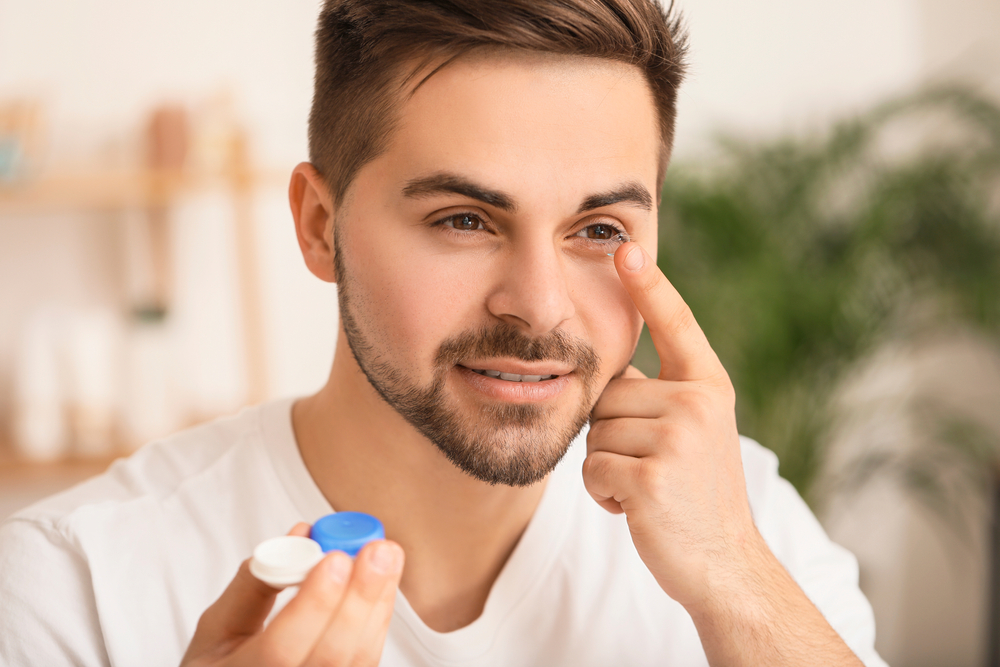
Myopia is a refractive error resulting in a blurry vision of distant objects. Myopia typically develops in childhood and can worsen over time. While eyeglasses and contact lenses can correct the vision problems associated with myopia, they do not address the underlying issue - the elongation of the eye. The goal of myopia control is to slow the progression of myopia, reducing the risk of associated eye diseases such as retinal detachment, glaucoma, and cataracts. There are numerous myopia control options available, including orthokeratology, atropine drops, and specialty contact lenses.
What is Orthokeratology?
Orthokeratology is a non-surgical procedure that uses specially designed, gas permeable contact lenses to reshape the cornea temporarily. The lenses are worn overnight and removed in the morning, providing clear vision throughout the day without the need for glasses or contact lenses.
Ortho-k lenses work by applying gentle pressure to the cornea, flattening it and shifting the focus point so that light lands directly on the retina. This corrects the refractive error that causes myopia. The effect is temporary, so the lenses must be worn every night to maintain clear vision. However, the constant reshaping of the cornea seems to slow its elongation, which is the underlying cause of myopia.
One of the main benefits of orthokeratology is that it provides clear, glasses-free vision during the day. For active individuals or those who find glasses and contact lenses inconvenient, this can be a significant advantage. Additionally, studies have shown that orthokeratology can effectively slow the progression of myopia in children and adolescents, reducing the risk of future eye problems.
Understanding Atropine Drops
Atropine eye drops are another effective option for myopia control. Atropine is a medication that has been used in ophthalmology for over a century to dilate the pupil and paralyze the focusing muscle in the eye. In low concentrations, atropine has been found to slow the progression of myopia, although the exact mechanism is still not fully understood.
Atropine drops are typically applied once a day, usually at bedtime. They are typically well-tolerated, with minimal side effects at the low concentrations used for myopia control.
The main benefit of atropine drops is their effectiveness in slowing myopia progression. Numerous studies have shown that low-dose atropine can significantly reduce the rate of myopia progression in children and adolescents. Atropine drops are also easy to use, and the low-dose formulation minimizes side effects.
The Role of Specialty Contact Lenses
Specialty contact lenses, such as multifocal lenses or peripheral defocus lenses, are another option for myopia control. These lenses are designed to change the way light is focused in the eye, reducing the stimulus for the eye to grow longer.
Multifocal lenses have different areas of focus, allowing for clear vision at different distances. By altering the focus of light in the peripheral retina, these lenses seem to slow the progression of myopia. Peripheral defocus lenses, on the other hand, have a specific design that focuses light in front of the peripheral retina, reducing the signal for eye growth.
Specialty contact lenses offer the dual benefit of correcting refractive errors and slowing myopia progression. They provide clear vision at all distances and can be an excellent option for those who prefer contact lenses over glasses.
How to Choose the Best Option
Choosing the best myopia control option depends on several factors, including the severity of myopia, the age of the patient, and personal preference. Ultimately, the decision should be made in consultation with an optometrist, taking into account the individual's needs and lifestyle.
For those who prefer not to wear glasses or contact lenses during the day, orthokeratology could be an excellent option. Atropine drops might be suitable for those who prefer a simple, non-invasive approach. Specialty contact lenses could be the best choice for those who are comfortable wearing contact lenses and want the dual benefit of vision correction and myopia control.
Taking Control of Your Vision
Myopia control is a crucial aspect of eye health, particularly for individuals with a high degree of myopia or a family history of the condition. Orthokeratology, atropine drops, and specialty contact lenses offer effective options for controlling myopia and reducing the risk of future eye problems. Explore these options and discuss them with them with your optometrist. Together, you can take control of myopia and protect your vision for the future.
If you would like to explore myopia control options, visit Island Family Eye Care in our Grand Island, New York office. Please call (716) 775-2220 to discuss any questions with our team of experts or to schedule an appointment today.







